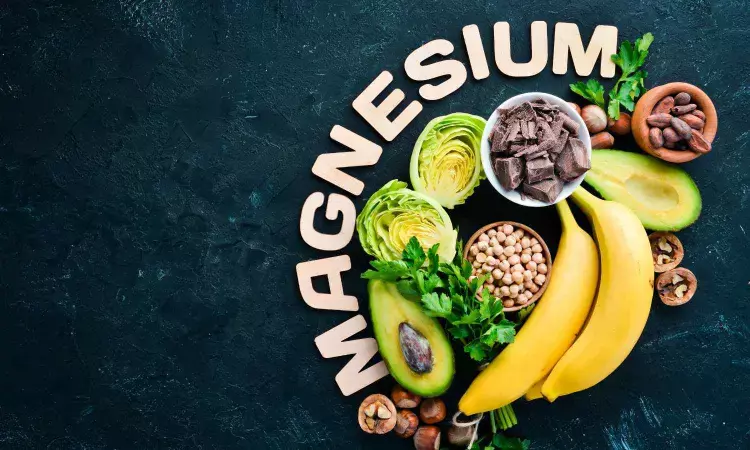- Home
- Medical news & Guidelines
- Anesthesiology
- Cardiology and CTVS
- Critical Care
- Dentistry
- Dermatology
- Diabetes and Endocrinology
- ENT
- Gastroenterology
- Medicine
- Nephrology
- Neurology
- Obstretics-Gynaecology
- Oncology
- Ophthalmology
- Orthopaedics
- Pediatrics-Neonatology
- Psychiatry
- Pulmonology
- Radiology
- Surgery
- Urology
- Laboratory Medicine
- Diet
- Nursing
- Paramedical
- Physiotherapy
- Health news
- Fact Check
- Bone Health Fact Check
- Brain Health Fact Check
- Cancer Related Fact Check
- Child Care Fact Check
- Dental and oral health fact check
- Diabetes and metabolic health fact check
- Diet and Nutrition Fact Check
- Eye and ENT Care Fact Check
- Fitness fact check
- Gut health fact check
- Heart health fact check
- Kidney health fact check
- Medical education fact check
- Men's health fact check
- Respiratory fact check
- Skin and hair care fact check
- Vaccine and Immunization fact check
- Women's health fact check
- AYUSH
- State News
- Andaman and Nicobar Islands
- Andhra Pradesh
- Arunachal Pradesh
- Assam
- Bihar
- Chandigarh
- Chattisgarh
- Dadra and Nagar Haveli
- Daman and Diu
- Delhi
- Goa
- Gujarat
- Haryana
- Himachal Pradesh
- Jammu & Kashmir
- Jharkhand
- Karnataka
- Kerala
- Ladakh
- Lakshadweep
- Madhya Pradesh
- Maharashtra
- Manipur
- Meghalaya
- Mizoram
- Nagaland
- Odisha
- Puducherry
- Punjab
- Rajasthan
- Sikkim
- Tamil Nadu
- Telangana
- Tripura
- Uttar Pradesh
- Uttrakhand
- West Bengal
- Medical Education
- Industry
Low magnesium levels increase risk of DNA damage and chronic degenerative disorders: Study

A new Australian study has identified why a diet rich in magnesium is so important for our health, reducing the risk of DNA damage and chronic degenerative disorders.
Scientists from the University of South Australia measured blood samples from 172 middle aged adults, finding a strong link between low magnesium levels and high amounts of a genotoxic amino acid called homocysteine.
This toxic combination damages the body’s genes, making people more susceptible to Alzheimer’s and Parkinson’s disease, gastrointestinal diseases, a range of cancers, and diabetes.
Wholegrains, dark green leafy vegetables, nuts, beans and dark chocolate are all magnesium-rich foods, which help the body produce energy, build teeth and bones, regulate blood sugar and blood pressure, and ensure that the heart, muscles and kidneys all work properly.
UniSA molecular biologist Dr Permal Deo says a low intake of magnesium (less than 300mg per day) can increase the risk of many diseases, but its role in preventing DNA damage has not been fully studied in humans until now.
“Our study showed a direct correlation between low magnesium levels in blood (less than 18mg/L) and increased DNA damage, even after adjusting for gender and age,” Dr Deo says.
“Blood levels of magnesium, homocysteine (Hcy), folate and vitamin B12 were measured, showing an inverse correlation between magnesium and Hcy and a positive correlation between magnesium, folate and vitamin B12. This indicates that sufficiently high magnesium levels in the blood are essential to protect our genes from toxicity caused by homocysteine, which is increased when folate and vitamin B12 are deficient.”
Co-author Professor Michael Fenech says chronic magnesium deficiency is likely to disrupt the body’s ability to produce energy and power cells, causing accelerated tissue ageing and making people more susceptible to early onset of many diseases.
Magnesium is the fourth most abundant mineral present in the human body. More than 600 enzymes require it as a co-factor and almost 200 require it to activate critical processes in the body.
“The next step is to determine the optimal dietary intake of magnesium, either through food or supplements and how this could impact the onset or progression of cancer and other chronic diseases,” Prof Fenech says..
Reference:
Dhillon, V.S., Deo, P. & Fenech, M. Low magnesium in conjunction with high homocysteine increases DNA damage in healthy middle aged Australians. Eur J Nutr (2024). https://doi.org/10.1007/s00394-024-03449-0.
Dr Kamal Kant Kohli-MBBS, DTCD- a chest specialist with more than 30 years of practice and a flair for writing clinical articles, Dr Kamal Kant Kohli joined Medical Dialogues as a Chief Editor of Medical News. Besides writing articles, as an editor, he proofreads and verifies all the medical content published on Medical Dialogues including those coming from journals, studies,medical conferences,guidelines etc. Email: drkohli@medicaldialogues.in. Contact no. 011-43720751


